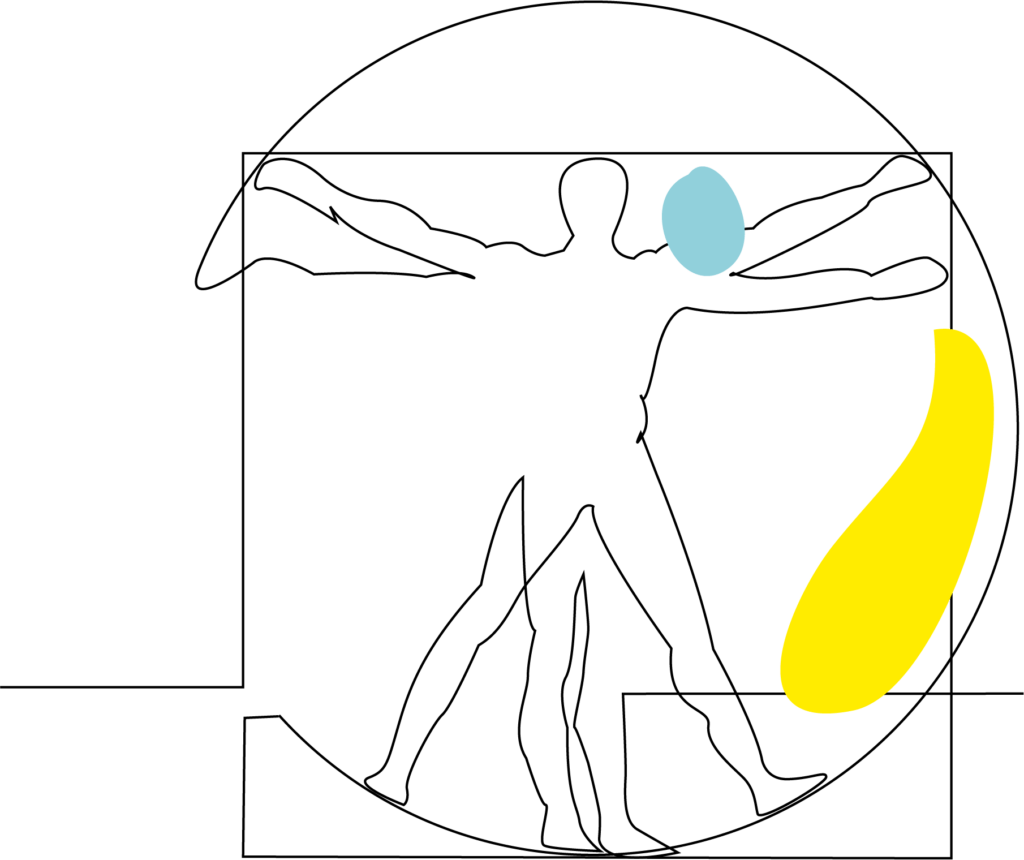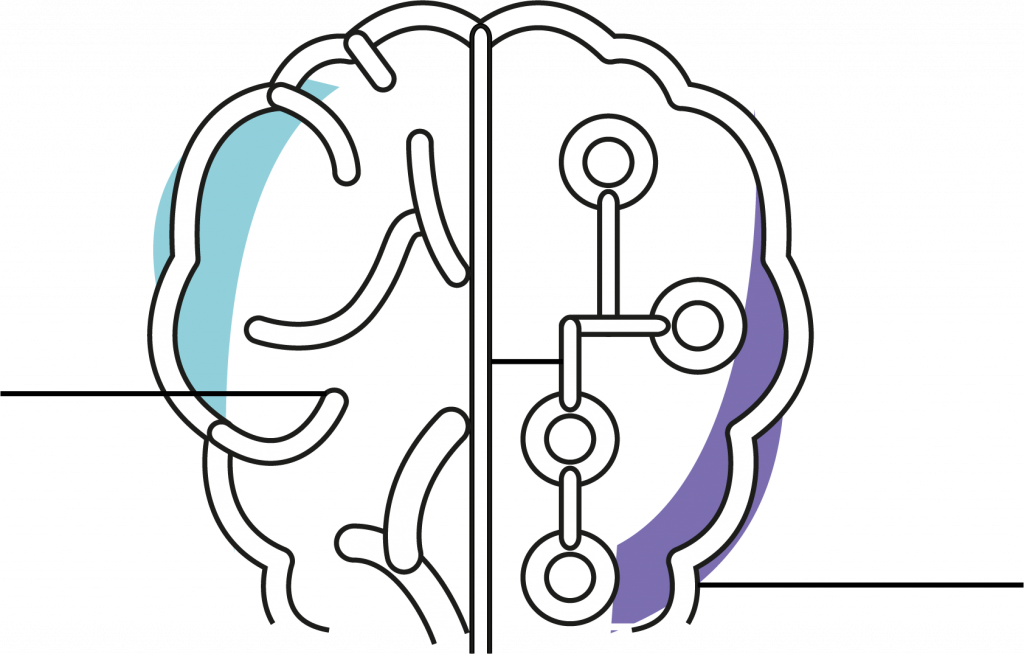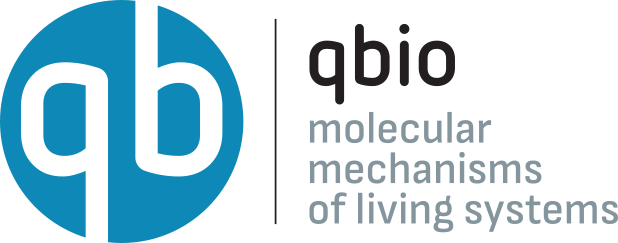IDIL Tracks
You will here find the search engine for the University of Montpellier's training offer. To use it, simply enter the keyword "idil":
MASTERS
Chemistry specialization

CHEMISTRY FOR HEALTHCARE, PROTECTION & NUTRITION
- Prodrugs and bioprecursors
- Nanotechnologies and multifunctional targeting
- Chemobiology
Details
The Chemistry for healthcare, protection & nutrition applications master's program focuses on the essentials that guarantee the very existence of humankind, and looks far beyond, organizing the crucial aspects of a healthy, sustainable life in harmony with the environment. Chemistry lies at the heart of the vital concepts of caring for, protecting and nourishing human beings. This course offers you a multi-disciplinary training in chemistry, enriched by biology, medicine and pharmaceutical sciences on the one hand, and chemical engineering and materials science on the other.
Having forged your ability to understand and analyze the diverse and complex issues at stake of human health and it’s environment, capable of acting individually and as part of a team, and having acquired real international experience, you will be key players in public or private research programs. Having completed a bachelor's degree in chemistry or any other equivalent, this course provides in-depth, up-to-date training in molecular and macromolecular chemistry and materials chemistry applied to health and the environment (from eco-design to recycling), combined with research training in our leading laboratories.
Contact
Comparative Politics
Comparative politics and public policy
- International politics
- Political sociology of elites
- European political institutions

Details
The IDIL " Comparative Politics and Public Action " Master's degree is a selective, multi-disciplinary specialization in political science. It focuses primarily on the fields of political sociology and public policy analysis.
Offered by the Faculty of Law and Political Science at the University of Montpellier, this Master's degree in political science (one of three at the institution) is the only one in France to be offered under the heading of "Comparative Politics". In this respect, it emphasizes sensitivity to international comparative openness as a research approach, in the profile of students and lecturers and in the use of English as a working language.
The Master's program will give preference to students with a bachelor's degree or equivalent in political or social sciences, but will also consider profiles from the humanities.
At the end of their training, Master's graduates have the ability to work intensively, the capacity to synthesize, the mastery of methods for analyzing complex situations, and knowledge of the world of politics and public action.
Contact
Laura Michel (academic)
Sylvia Gonçalves-Buadès (administrative)
Engineering and Ergonomics of Physical Activities specialization

DIGITAL AND MOVEMENT SCIENCES FOR HEALTH
- Experimental design
- Signal processing
- Machine learning
- Perception-action dynamics and motor primitives
- Brain imaging for movement
Details
The IDIL Digital and Movements Sciences for Health (DigiMove) master's degree offers a comprehensive curriculum that fosters skills in the fusion of experimental research, human movement sciences and data sciences through a combination of courses and internships.
The program focuses on three main areas: experimental research, including research ethics, measurement chain, statistical analysis, mathematical tools; human movement science, including biomechanics, sensory-motor control and learning, exercise physiology, psychology of physical activity; and data science, including time series analysis, system dynamics modeling, data visualization, artificial intelligence (machine learning), reproducible data science.
Supported by a network of laboratories in the Montpellier region, students work closely with professors and research teams, tailoring their training to their individual goals.
To embark on this academic path, students must have a strong motivation for basic research and a good academic level in their bachelor's degree, preferably in kinesiology or computer science. Specializations in fields such as rehabilitation, exercise physiology, movement psychology, movement neuroscience, human-computer interfaces, data science, machine learning or software engineering are highly appreciated. Fluency in scientific English is a prerequisite, and autonomy and teamwork skills are essential.
Graduates of this program acquire advanced skills to manage basic research or R&D projects in the field of information and motion sciences with healthcare applications. They have the possibility of becoming R&D engineers or pursuing a PhD, which can lead to research positions in the public or private sector.
Contact
Mention Earth and Planetary Sciences, Environment
or
Mention Water Sciences
Earth and water under global change
- Hydro-Geophysics
- Geodynamics and plate tectonics
- Chemical and ecological risks

Details
The Earth and Water Under Global Change (AWARE) master's program focuses on the impact of global changes on agro-ecological, hydrological and geological processes, as well as their consequences on socio-eco-systems and the solutions adapted to deal with these major problems. It provides students with a common foundation of cutting-edge courses, methodological and digital tools, and customized training courses dealing with the impact of climatic and anthropogenic forces on the environment and the Earth's resources. Environmental and health risks, geological risks, hydro-climatic risks and their impacts on agro-ecosystems, water resources, socio-hydrosystems or the coastal environment will also be at the heart of the transdisciplinary training offered by AWARE.
The program is supported by various research units grouped together in the UNESCO ICIReWarD-Montpellier center, offering an optimal framework for studying the impact of global change on our planet, its resources and its environment.
Candidates must have a clear interest in environmental sciences and in training for research in water or earth sciences. The AWARE Master's degree is associated with the GAIA doctoral school (Earth and Water Sciences), offering opportunities to pursue doctoral studies.
Contact
Christina Orieshnig (Water Mention)
Yohann Cousquer (Water Mention)
Delphine Roubinet (Mention Terre)
Linda Luquot (Mention Terre)
Eco-Epidemiology specialization

eco-epidemiology of emerging diseases
- Ecology and evolution of microorganisms and parasites
- Transmission: case studies
- Risks, risk analysis and monitoring
- Bioinformatics and databases
- Variability study
Details
The Eco-EPIED master's degree is a response to the contemporary challenge of emerging infectious and parasitic diseases in human and animal populations.
In light of the ecological, environmental and evolutionary analysis of these phenomena, this multi-disciplinary program provides a synthetic approach. It integrates all the relevant scientific skills and tools (including biology, statistics, bioinformatics and human science concepts) into different contexts and concrete public health needs. In this way, Eco-EPIED is a One Health program dedicated to research and its concrete applications.
Recognized Montpellier research units dedicated to the analysis and control of emerging diseases support the program. It also involves experts from international organizations, public health agencies, pharmaceutical laboratories and non-governmental organizations.
This interdisciplinary training program is open first and foremost to students with a Bachelor’s degree in life sciences, health sciences and 4th year pharmacy or human medicine. Secondarily, students holding a degree in Geography and Development, Social Sciences, Health and Social Sciences (their integration will be validated on the basis of complementary training elements indicating their ability to rapidly acquire skills in the so-called "hard" sciences). Nevertheless, all students must have a strong interest in the biology/ecology of pathogens, communicable diseases and epidemiology. And their academic and non-academic backgrounds should attest to their openness to a transdisciplinary approach including bioinformatics, statistics and the human sciences. Proficiency in scientific English (B2 level) is required. Autonomy and the ability to work as part of a team are also required.
Contact:
Management
Management and sustainable transition
- Enterprise risk management
- Corporate Finance
- People performance management

Details
The aim of the " Management and Sustainable Transition " (MaST) Master's program is to train management students to deal with the complexity of managerial phenomena linked to the challenges of sustainable development. It prepares students for entry into doctoral studies and/or professional careers in companies or public bodies.
The MaST Master's program is open to national and international students with a bachelor's degree in management or equivalent. Candidates must have an excellent academic record, and strong practical and theoretical skills in their discipline. They must be able to keep abreast of major contemporary managerial issues and to mobilize the concepts and tools required for management; they must master the operating principles of an organization and be capable of participating in the reflection and elaboration of a strategy; they are able to debate and argue rigorously, to work as part of a team and take responsibility for a project, to identify, select, analyze and synthesize knowledge with a critical mind; they have demonstrated, through their experience, an interest in sustainable development issues, particularly around environmental, food and health issues.
Together with the MaST teaching team, each student builds a personalized, research-oriented training plan, combining specialty courses, introductory courses in other related disciplines, methodology courses, personal and interdisciplinary team projects, and internships in research laboratories.
Contact:
Fundamental Physics and Applications
or
Mechanical Physics

Modeling Biological and environmental systems
- Stochastic process
- Biological physics
- Finite element simulation
Details
The aim of the " Modelling Environmental and Biological Systems " (MoBiEn) Master's program is to train students in the quantitative and theoretical investigation of complex phenomena in living systems emerging at several scales: from the single molecule to living organisms, as well as their interaction with their environment.
The Master MoBiEn brings together scientists from different laboratories and professors from our 4 departments: Mathematics, Physics, Mechanical Engineering and Computer Science. In this sense, it offers a coherent multidisciplinary program that makes MoBiEn a unique training program whose core disciplines are Statistical Physics, Stochastic Processes, Biomechanics, Numerical Simulations, Statistical Methods, Advanced Data Analysis Techniques, and Artificial Intelligence.
The MoBiEn Master's program is open to highly motivated national and international students with a bachelor's degree in Physics or Mechanical Engineering, who wish to study phenomena at the interface between mathematics, physics, engineering, biology and ecology. Candidates should have an excellent academic record, robust mathematical skills, and solid theoretical knowledge of their discipline. Familiarity with numerical programming and computer-aided computation is appreciated. No prior theoretical knowledge of biology or environmental systems is required: students will learn the basics during the first year of the Master's program.
Together with the MoBiEn pedagogical team, each student will develop a personalized research-oriented training plan that enhances his or her CV, skills and scientific interests, by preparing measurable training objectives to be achieved at the end of each year. The training aims to prepare students for a PhD in basic research, or for professional opportunities in public or private research.
Contact:
Electronics, Electrical Energy, Automatics specialization
Photonic & electronic sensors for environment and health
- Sensors and associated systems
- Lasers and photodiodes
- Sensor technology and design tools
- Photonic instrumentation and metrology

Details
Sensors are omnipresent in our modern world. To give just a few examples: in the environment, they are used to detect and quantify the presence of pollutants in water or the atmosphere; in medicine, they enable 2D or even 3D imaging of the eye or arteries, or the early diagnosis of diseases. Most of the latest high-performance sensors are based on electronic or optical/photonic components, and we don't even know it. Against this backdrop of ever-increasing and more demanding demand, the IDIL Master's degree "Photonic & electronic sensors for the environment and health" aims to train highly qualified personnel in the field of electronic and photonic sensors, with a focus on applications in the environment and health, supported by long stays in research laboratories. Graduates can then choose to complete their training to become researchers in the public or private sectors, responsible for developing new systems that open up the field of possibilities for the future.
The course is supported by the Institute of Electronics and Systems, a world-class Univ. de Montpellier / CNRS research laboratory in the field of sensors and photonics. Supervised by renowned researchers, you will learn to master state-of-the-art experimental techniques, enabling you to design and manufacture lasers, sensors, detectors and other key components using cutting-edge technological equipment, right through to the application of these components, particularly in the environmental and health fields.
Contact:
Biology and Agrosciences

Plant and Microbiological sciences for agro-environment
- Mineral nutrition and plant adaptation to abiotic constraints
- Microbial ecology
- The role of micro-organisms in ecosystems
Details
The " Plant and Microbiological Sciences for the Agro-Environment " program offers training through research in plant sciences and microbiology. The course covers the study of plants and microorganisms at the molecular and cellular levels, and at the level of the organism interacting with its agro-environment.
The program is supported by a network of laboratories unique in the world, developing research on a wide range of topics in these vast disciplinary fields. At the start of the Master's program, the student, the teaching staff and a research team work together to draw up a training plan, enabling the student to customize a specialized program in plant sciences or microbiology.
To follow this track, students must have acquired a very good level of knowledge in molecular and cellular biology and genetics on the one hand, and in plant physiology and microbiology on the other. Knowledge of bioinformatics would be appreciated. A good command of scientific English is required. Autonomy and the ability to work as part of a team are essential. Graduates of this Master's program will have acquired advanced skills in a research theme related to plant sciences or their interactions in the agro-environment, leading to the management of fundamental research or research and development projects.
Contact
Biology-Health specialization
Quantitative BIOLOGY: MOLECULAR MECHANISMS OF LIVING SYSTEMS (qbio)
- Imaging biological systems
- Synthetic biology
- Applied structural biology
- Practical modeling and simulations of biological systems

Details
The Master's program in Quantitative Biology: Molecular Mechanisms of Living Systems (qbio) focuses on emerging interdisciplinary fields in the biosciences, ranging from cutting-edge experimental techniques in microscopy, synthetic and structural biology, to modeling and systems approaches in the life sciences. You'll learn the fundamentals of these disciplines through team and individual projects, supervised by leading researchers, as part of an innovative teaching program.
We're looking for highly-motivated students who want to learn by doing, have a bachelor's degree (L3 or equivalent) in biology, physics, mathematics or chemistry, and are interested in tackling biological issues through a variety of interdisciplinary approaches.
Contact
Biodiversity, Ecology and Evolution specialization

Quantitative Ecology & Evolution
- Ecology
- Evolution
- Variability study
Details
The biological and ecological sciences are increasingly linked to the mathematical sciences, in order to characterize complex interactions and processes between organisms and their environments, and to analyze and process large databases. The IDIL Master's degree in Quantitative Ecology and Evolution aims to train students in the field of ecology and evolution, with a strong interface with mathematical sciences, statistics and numerical analysis.
This uncommon training will provide students with strong and competitive skills in the ecological and evolutionary sciences. This selective interdisciplinary course is open to students with a bachelor's degree in ecology/evolution and/or mathematics. However, students must demonstrate a very strong interest in biology/ecology AND mathematics.
Contact
Biology-Health specialization
Sciences for human health
- Cell Biology
- Functional genomics
- Current research in immunology

Details
The multi-scale interdisciplinary research used in modern Bio-Health requires that people working in the field be trained in a wide range of disciplines. In this sense, the “Sciences for Human Health (SH2)” pathway provides a new training curriculum within a higher education institution for young scientists, ranging from Master to PhD, while bringing together people with different backgrounds
Based on this observation, the program (SH2) implements a dual curriculum in medicine and biology, to train future leaders, scientists and healthcare professionals in the field of Bio-Health. The training provides a solid grounding in key disciplines, and creates close links between training and research.
This course is aimed at students from science and technology backgrounds who work closely with the healthcare sector (physicians, pharmacists, odontologists).
Students must be motivated by fundamental research and have a degree in Life Sciences, with a specialization in one of the following 7 areas: Cancer Biology, Therapeutic Engineering and Bio-production in Health Biotechnology, Epigenetics, Genetics and Cell Biology (EpiGenBio), Infection Biology, Experimental and Regenerative Medicine (MER), Neuroscience, Quantitative Biology (qBio).
The "Sciences for Human Health (SH2)" pathway combines advanced teaching and excellent research to develop innovative thinking in students, and raise their awareness of the impact of the environment on human health. The research program is in line with MUSE's ambition to support excellence in basic and clinical research in the field of Bio-Health. It offers multidisciplinary and integrative research, from genetics to molecular and experimental medicine, to develop quantitative biology and new therapeutic and diagnostic strategies for human health. This master's degree prepares students for tomorrow's quantitative and personalized medicine.
Contact
Engineering Diploma

Research and Innovation engineer diploma
Details
The Engineering Research Pathway is organized around three Montpellier engineering schools (Polytech Montpellier, ENSCM and Institut Agro), and aims to boost the training-research-innovation link, while strengthening school/laboratory interactions around innovative projects.
Training engineers through research is one of the best ways to train students capable of embracing the complex themes of sustainable transitions, preserving energy, natural resources, biodiversity and the environment. The aim is to develop their critical sense, scientific rigor, creativity and taste for innovation, while developing the systemic vision that characterizes engineers.
This approach is organized in our schools around a common theme: "Sustainable transitions", and enables the development of multi-disciplinary skills, responding to major societal challenges.
Fitting in with the curricula of these schools, the Engineering Research Pathway offers :
- Participation in an integration seminar for students from all three schools, including an international conference on a Muse themeFeed Care Protect) and group work sessions on sustainable transitions;
- Transversal courses followed in common: experimental approach, writing scientific articles in English, bibliographic research and monitoring, etc;
- Work on a Research and Development project;
- Bibliographical study of a research project, establishment of experimental protocols, data acquisition, analysis and processing of results, drafting and peer reviewing in line with good practice and research ethics. This project may eventually lead to a scientific publication and/or patent.
- An end-of-study R&D internship in a public or private laboratory.
Contact
Pascal Benoit (Polytech)
Ayad Tahar (ENSCM)
Jean-François Martin (Institut Agro)